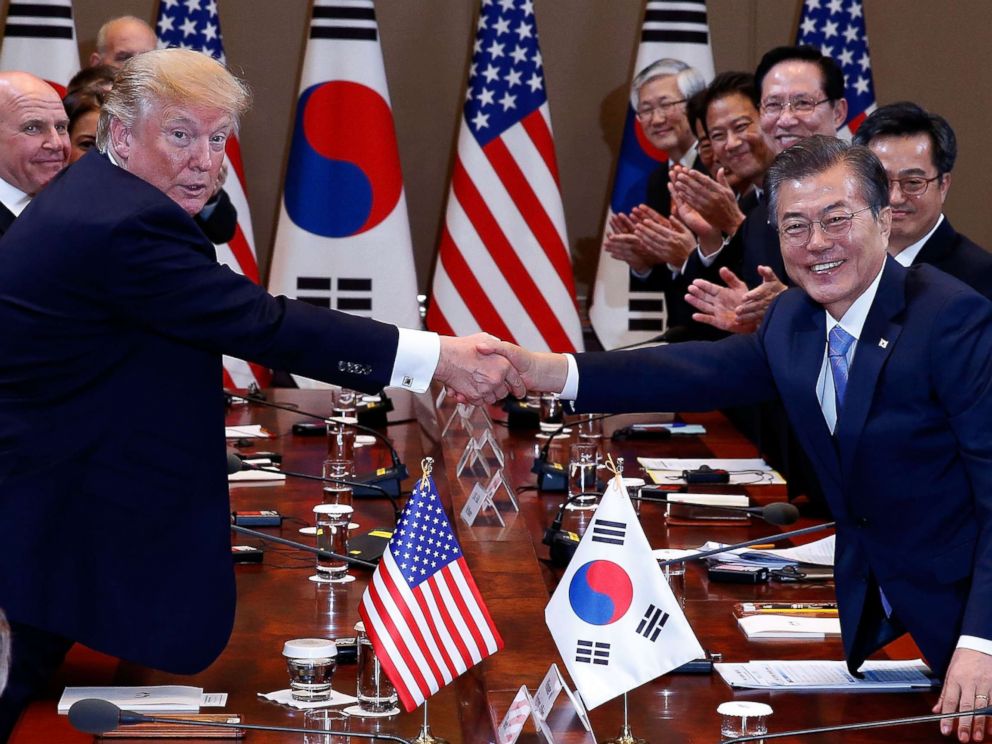
President Donald Trump has recently made a decision to slap high tariffs on imported washing machines, solar panels and solar components. The move is the first major step by the Trump administration toward erecting trade barriers which the president has repeatedly said are necessary to protect domestic manufacturers and workers, and it will be an important indicator of the administration’s trade policy. The tough trade measures have gained the mass support of traditional manufacturers in states like Michigan, Wisconsin and Pennsylvania, the heart of President Trump’s Republican base. Nevertheless, the tariffs would adversely impact the competitiveness of American businesses in the long term.
The U.S. has imposed “safeguard” tariffs under Section 201 of the Trade Act of 1974. President Trump revisited the safeguard provision for the first time in 16 years to levy duties on foreign-made washing machines, ranging from 16 percent to 50 percent, and solar panels, ranging from 15 percent to 30 percent.
It is very rare for the U.S. to impose global safeguard duties because they are a drastic device which can cause a severe international backlash. The last time Washington invoked the safeguard provision was 16 years ago in 2002 when the Bush administration slapped duties up to 30 percent on imported steel to offset the financial losses suffered by the domestic steel industry and its workers. The World Trade Organization determined that the U.S. violated its obligations to the global trade body, and the European Union and Japan threatened to impose multiple billions of dollars in retaliatory tariffs against American goods. Accordingly, the Republican administration backed down in December 2003.
Similarly, South Korea, Taiwan and China immediately rebuked the Trump administration’s decision to impose duties on imports of washers and solar modules, disclosing their intention to appeal the tariffs to the WTO. Even if the organization rules in their favor, however, it would be unlikely for those countries to dodge the safeguard duties during the first three years of their application, because it takes years for the WTO to determine a case. Moreover, U.S. Commerce Secretary Wilbur Ross has recently suggested that Washington may not accept the trade body’s decisions if it holds the U.S. tariffs to be illegal.
Meanwhile, the Trump administration’s decision to impose tariffs would be likely to impact domestic consumers and U.S. market competitiveness unexpectedly and negatively; the consequences may not be limited to friction with foreign firms. The tariff costs on foreign manufacturers will most definitely drive up prices for consumers. In fact, the solar panel and washing machine cases could set a precedent that would be misused by American companies as a lever to compete in global markets. Now that the petitions from Whirlpool, a washing machine maker, and two solar panel makers – Suniva and SolarWorld – have been successfully translated into safeguard remedies, there is a chance that some U.S. businesses, which have concluded that they are in no shape to compete against foreign makers, will ask for import protection from the United States Trade Representative. Not incidentally, such excessive use of safeguard measures raises prices for consumers, limits consumer choice and makes the safeguarded industries overall less competitive.
Broadly speaking, the washer and solar gear cases appear to be an extreme example of the trade policy the Trump administration is scrambling to bring into line with the president’s protectionist remarks. Prior to the twin cases, President Trump announced the U.S. withdrawal from the Trans-Pacific Partnership, claiming that when it comes to trade, the country has been disadvantaged for decades. Now he is calling for renegotiation of the North American Free Trade Agreement with Canada and Mexico and of the U.S.-Korea Free Trade Agreement. Given the context, the sweeping tariffs on solar panels and washing machines signal that the administration will follow up with another hawkish and anti-competitive trade measure down the road. The Trump team has an interest in doing so: They need to rally opponents of free trade for the 2018 midterm elections and the 2020 presidential election.
In responding to the shift in U.S. trade policy, South Korea needs to adopt a conciliatory approach on top of its traditional strategies. Of course, Seoul should immediately take legal action against U.S. violation of a WTO agreement. This is separate from allowing for the political leanings of the Trump administration. At the same time, however, the U.S. ally should understand the uniqueness of the current U.S. political climate and devise a way to deal with it accordingly. Point one: Seoul needs to capitalize on President Trump’s inclination to act according to his feelings and instincts, which is stronger than that of any other U.S. president. To do so, it should turn its efforts to building strong ties with the president, the first family of the U.S., and his aides. Point two: The Moon administration should spearhead systematic and well-organized lobbying efforts to gain support of American policymakers and communities. South Korea needs to aggressively promote its image as a true and reliable U.S. partner at a time when anti-trade sentiment is rising in America; otherwise, it may well find itself embroiled by American protectionists and white supremacists in an irremediable situation. Point three: Seoul should keep building on its working relationships with American companies based on strong U.S.-Korea relations. The Moon administration’s task at hand is, if it cannot turn the tables, to cleverly combine customary measures with innovative ones and to examine how best to undercut the disruptive political style pursued by the Trump administration.

Leave a Reply
You must be logged in to post a comment.